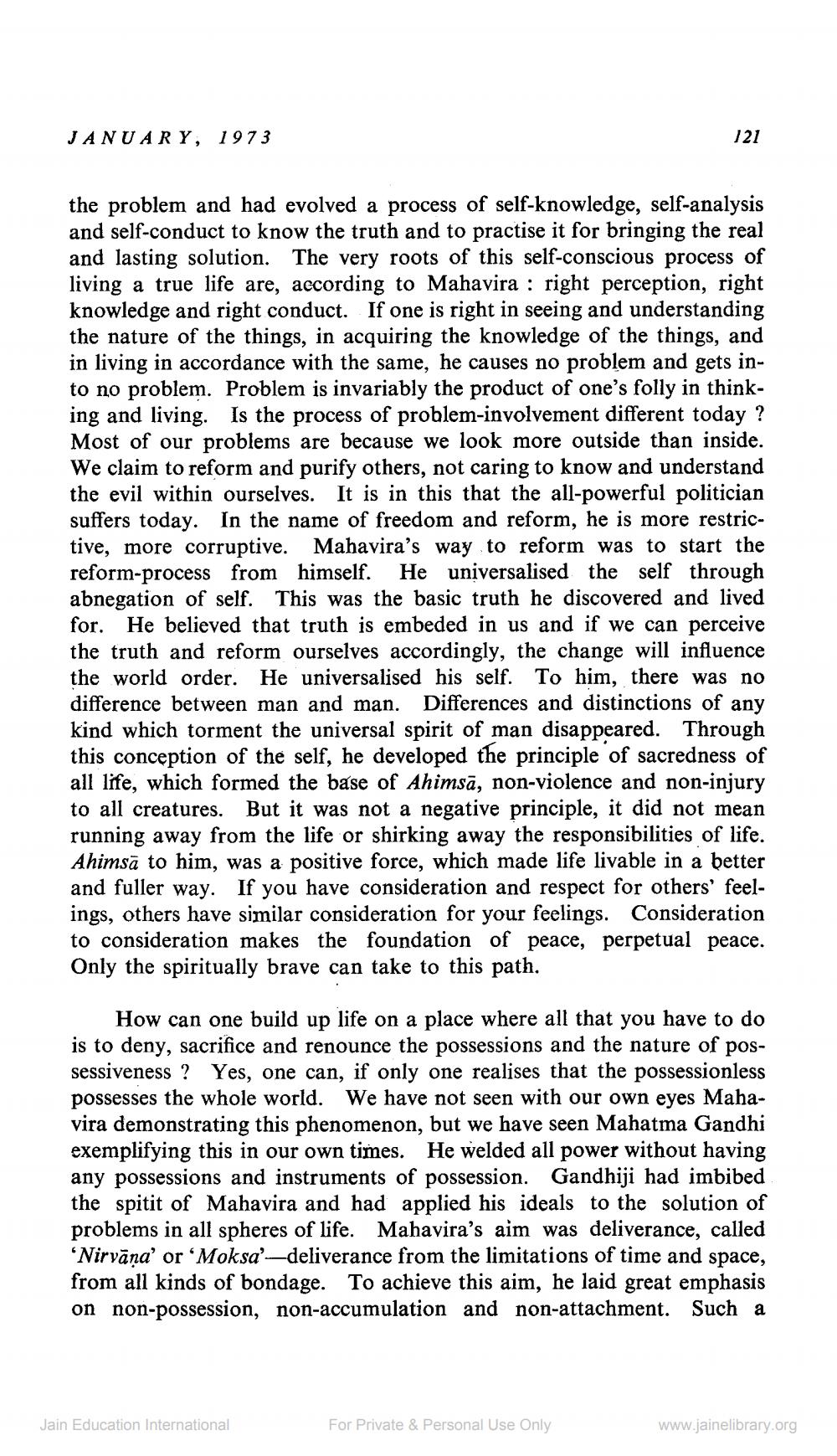________________
JANUARY, 1973
the problem and had evolved a process of self-knowledge, self-analysis and self-conduct to know the truth and to practise it for bringing the real and lasting solution. The very roots of this self-conscious process of living a true life are, according to Mahavira: right perception, right knowledge and right conduct. If one is right in seeing and understanding the nature of the things, in acquiring the knowledge of the things, and in living in accordance with the same, he causes no problem and gets into no problem. Problem is invariably the product of one's folly in thinking and living. Is the process of problem-involvement different today? Most of our problems are because we look more outside than inside. We claim to reform and purify others, not caring to know and understand the evil within ourselves. It is in this that the all-powerful politician suffers today. In the name of freedom and reform, he is more restrictive, more corruptive. Mahavira's way to reform was to start the reform-process from himself. He universalised the self through abnegation of self. This was the basic truth he discovered and lived for. He believed that truth is embeded in us and if we can perceive the truth and reform ourselves accordingly, the change will influence the world order. He universalised his self. To him, there was no difference between man and man. Differences and distinctions of any kind which torment the universal spirit of man disappeared. Through this conception of the self, he developed the principle of sacredness of all life, which formed the base of Ahimsa, non-violence and non-injury to all creatures. But it was not a negative principle, it did not mean running away from the life or shirking away the responsibilities of life. Ahimsa to him, was a positive force, which made life livable in a better and fuller way. If you have consideration and respect for others' feelings, others have similar consideration for your feelings. Consideration to consideration makes the foundation of peace, perpetual peace. Only the spiritually brave can take to this path.
121
How can one build up life on a place where all that you have to do is to deny, sacrifice and renounce the possessions and the nature of possessiveness? Yes, one can, if only one realises that the possessionless possesses the whole world. We have not seen with our own eyes Mahavira demonstrating this phenomenon, but we have seen Mahatma Gandhi exemplifying this in our own times. He welded all power without having any possessions and instruments of possession. Gandhiji had imbibed the spitit of Mahavira and had applied his ideals to the solution of problems in all spheres of life. Mahavira's aim was deliverance, called 'Nirvana' or 'Moksa'-deliverance from the limitations of time and space, from all kinds of bondage. To achieve this aim, he laid great emphasis on non-possession, non-accumulation and non-attachment. Such a
Jain Education International
For Private & Personal Use Only
www.jainelibrary.org




